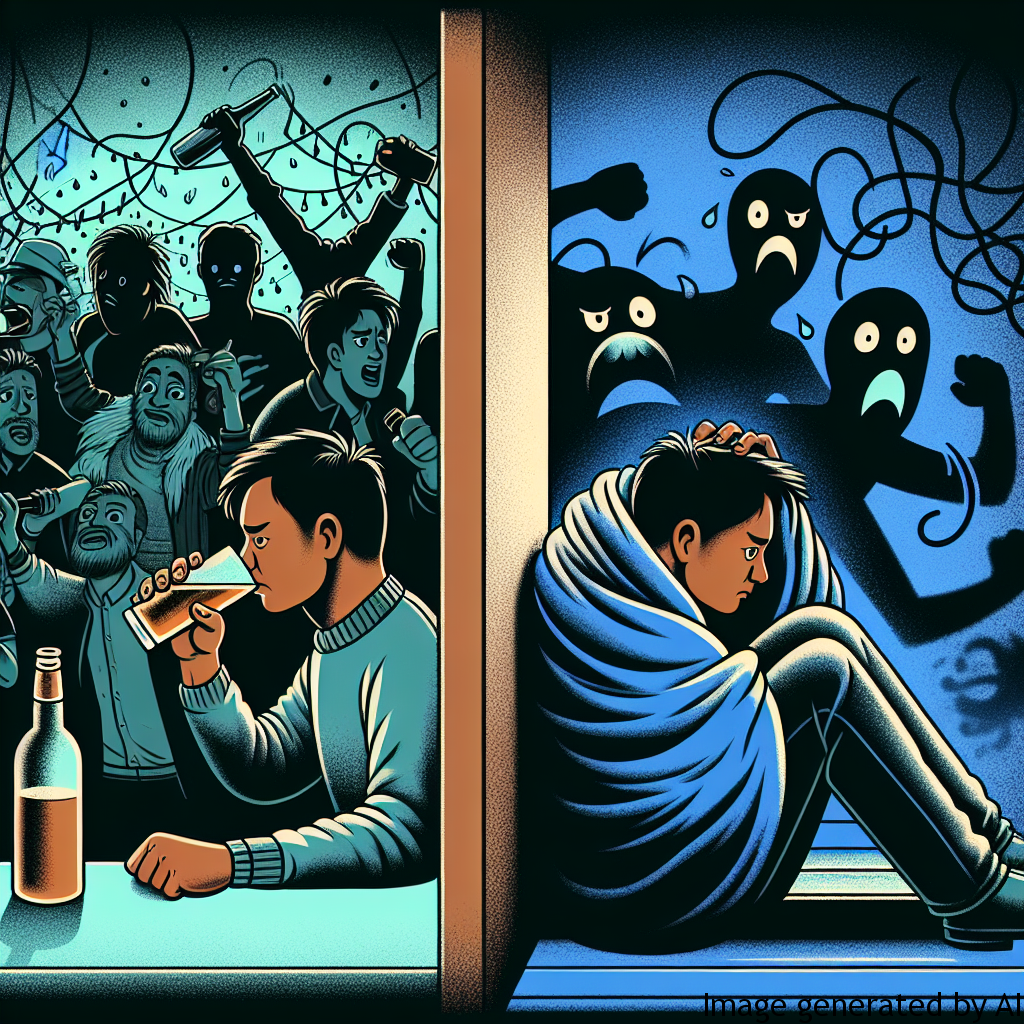Introduction
Excessive alcohol consumption has been linked to a myriad of health issues, both physical and psychological. Among those psychological implications, anxiety stands as one of the most prevalent. This article aims not only to inform about the impact of alcohol on anxiety levels but it also explores the intersections of gender roles and masculinity on the psychological health of men.
Gender Expectations and Their Effect on Men’s Mental Health
The traditional norms and expectations associated with masculinity carry several mental health implications for men. Notably, societal pressure and the expectation to suppress emotions may lead to unhealthy coping mechanisms, such as excessive alcohol consumption.
Pressure to Conform
Research indicates that men often feel societal pressure to conform to stereotypical masculine characteristics, such as stoicism, self-reliance, and the suppression of emotions. This pressure often results in men avoiding seeking help for mental health issues, which can exacerbate underlying issues such as anxiety.
Alcohol as a Coping Mechanism
As a result of the societal expectation to suppress emotions, many men turn to substance abuse, particularly alcohol, as a coping mechanism. In the short term, alcohol can diminish feelings of anxiety, leading to a cycle of dependency as men use alcohol to manage their symptoms.
Examples of How Gender Roles Can Impact Men’s Lives
Men dealing with anxiety or other mental health issues can feel compelled to hide their struggles in order to fit into the mold of ‘traditional masculinity.’ This often leads to unhealthy behaviors and increased alcohol consumption.
In traditional employment roles, such as manual labor jobs, there’s even greater pressure for men to appear tough. As a result, individuals in these roles are often more prone to using alcohol as a means to cope with anxiety and stress related to their job.
Tips to Improve Psychological Health Considering Gender Roles
Recognizing the dangers of excessive alcohol consumption and the role that societal gender pressure plays is the first step towards healthier habits. Here are several ways to improve mental health:
Regular Psychological Check-ups
Engaging in regular psychological check-ups can identify any possible issues early and prevent complications due to neglecting mental well-being. It is essential to normalize these conversations among men to break down the stigma associated with seeking help.
Healthy Coping Mechanisms
Implementing healthy coping mechanisms, such as mindfulness and exercise, can aid in alleviating symptoms of anxiety. These alternatives should be promoted among men as a healthier substitution to alcohol, and they could prove crucial for managing stress and anxiety.
Acknowledging Emotions
Denying or suppressing emotions will likely exacerbate the situation. Encouraging men to understand and acknowledge their emotions can help alleviate anxiety and reduce the appeal of unhealthy coping mechanisms like alcohol consumption.
Conclusion
Addressing the impact of alcohol on anxiety levels in men requires a comprehensive approach that takes into account societal norms and gender roles. It is essential to shed light on the detrimental effects of traditional masculine norms. Encouraging dialogue about mental health can dispel stigmas and promote healthier coping mechanisms. Changing these entrenched societal attitudes will go a long way in preserving men’s mental health and fighting substance abuse.

